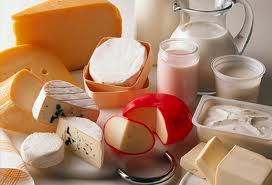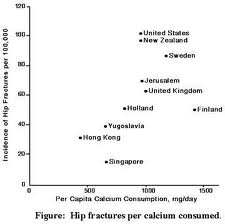 During my initial consults with patients, I always spend a large portion of the visit speaking with them about their diet and how it relates to health. One of the big topics I cover is why they should avoid dairy products. Dairy products are things that come from the milk of a cow, goat, or sheep, or even a water buffalo. They include actual milk, cheese, cream, ice cream, whipped cream, butter, yogurt, dry or condensed milk. Dairy does not include eggs, even though they are sold together. Many people who are allergic to dairy are also allergic to eggs, but that is for another blog. Even organic milk and milk products cause problems.
During my initial consults with patients, I always spend a large portion of the visit speaking with them about their diet and how it relates to health. One of the big topics I cover is why they should avoid dairy products. Dairy products are things that come from the milk of a cow, goat, or sheep, or even a water buffalo. They include actual milk, cheese, cream, ice cream, whipped cream, butter, yogurt, dry or condensed milk. Dairy does not include eggs, even though they are sold together. Many people who are allergic to dairy are also allergic to eggs, but that is for another blog. Even organic milk and milk products cause problems.
So, what's wrong with dairy? This is how I explain it to my patients:
The cow or goat or sheep is a relative newcomer to the earth-in the sense that they were created by selective breeding by humans from wild animals that were not milked. We estimate that the first milking of animals probably started about 8,000 years ago in the middle east and then spread to Europe, but not to Asia, Africa, or the Americas. Even today, 80% of the worlds people do not and physically cannot consume milk products due to a lack of the production of the lactase enzyme in adulthood. The people who can consume dairy without becoming violently ill are actually a mutant form of the original human design and are therefore the exception, not the rule. So, that's the historical scenario. For millions of years humans lived healthy lives without a drop of milk; their bones were strong and they had no dental cavities.
What does that matter if we can physically consume milk without throwing up or getting stomach cramps?
The answer is that consuming milk is linked to some very real health problems:
juvenile diabetes, allergies, acne, hormonal imbalance, and cancer.
We know that milk contains many different proteins, some of which cause allergic reactions in people. The most significant allergy inducing protein is casein, the protein that remains in cheese. The other is whey, but most people who are allergic to dairy are not actually allergic to whey, usually just the casein. (I actually recommend a purified form of whey protein known as hydrolyzed whey for my bodybuilding patients as it has a perfect amino acid composition for building muscle.)
I test for food allergies in many of my patients and dairy allergy is always number 1 on the list when the results come back. What sort of symptoms do I see with dairy allergy?
Headaches, sinus congestion, environmental allergies, asthma, eczema, joint pain, digestive problems, acid-reflux symptoms or GERD, irritable bowel symptoms, bloating, diarrhea
They often get better when the patient avoids dairy and come back with a vengeance when they have a slip and eat it again.
Juvenile diabetes has been clearly associated with the consumption of dairy products as have a variety of cancers, particularly breast, ovarian, prostate, and colon cancers. With respect to cancer, It it suspected that this is due to the presence of hormones in the milk known as xenoestrogens and the IGF-1 or insulin like growth hormone found in milk (or added in the form of bovine growth hormone). See my previous blog post for more information on xenoestrogens.
Acne is associated with consumption of dairy and is almost unknown in cultures where dairy and refined carbohydrates are not eaten. Clearly there is a link between acne and a high sugar/refined carbohydrate diet and the presence of all the hormones found in milk. Here is a list of a few of the over 60 hormones you drink every time you have a glass of milk or a serving of cheese or yogurt:
- 20α-dihydropregnenolone
- progesterone (from pregnenolone)
- 5α-pregnanedione
- 5α-pregnan-3β-ol-20-one, 20α- and 20β-dihydroprogesterone (from progesterone)
- 5α-androstene-3β17β-diol
- 5α-androstanedione
- 5α-androstan-3β-ol-17-one
- androstenedione
- testosterone
- dehydroepiandrosterone sulphate acyl ester
- insulin like growth factors 1 and 2 (IGF-1 and IGF-2)
- insulin
These hormones include xenoestrogens as well as testosterone and testosterone-like hormones that can stimulate oil production in the hair follicles and lead to pimples.
I have discussed the problem with xenoestrogens in a previous blog post. Xenoestrogens are estrogen-like hormones that disrupt your body's hormonal systems leading to early puberty and an increased risk of estrogen-associated diseases in girls and women and a lowering of testosterone in men, also increasing the risk of prostate and colon cancer.
What about all the health claims made for dairy products and milk? Well, the "Got Milk" ad campaign was very successful in linking dairy to athletes, TV and movie stars, and so on, but they are just running an ad campaign to generate increased sales. There is no evidence that drinking milk improves human health in any way. In fact the opposite may be true. Intuitively this is obvious. If 80% of humans don't consume milk, then why do they have strong bones and strong teeth if milk is so essential to health? In fact, the worst dental health and highest incidence of osteoporosis occurs in the parts of the world where more milk is consumed.
When cultures add milk to their diet, as in Asia and Greece, the incidence of osteoporosis rises. There is a clear epidemiological link between higher milk consumption and osteoporosis. This was also studied in the prospective NHANES III research study which found no association between reported milk intake and fracture. Studies that have linked milk consumption to a lower risk of fracture were poorly done and relied on the patients recall of their dietary habits as a child, which is very likely to create bias and error. Some studies have shown an increase in bone mineral density when drinking milk, but this has not translated to lower fracture risk.
The key is to build healthy bone, not just more dense bone. There are many factors involved in building bone, not just milk or calcium intake. They include getting enough protein, eating an anti-inflammatory diet full of healthy vegetables, avoiding refined carbohydrates and acidic foods such as soda, getting plenty of sunlight and vitamin D, exercising with weights, maintaining a proper hormonal balance by optimizing testosterone, estrogen, DHEA, cortisol, PTH, Calcitonin, growth hormone. All are important and many of these are missing from a typical American diet and lifestyle. Adding lots of milk is not the panacea that is advertised. Yes, milk does contain calcium, but there is no proof that drinking milk has any beneficial effect on bone health in terms of fracture prevention. Eating a healthy paleolithic type diet rich in proteins and calcium containing foods other than milk is a better option.
As a protein source, whey protein from milk is quite useful, but it should be purified and hydrolyzed. It has all the amino acids needed to build muscles and I highly recommend it and use it for my patients, providing they are not allergic to it.
There are many alternatives to dairy: almond milk, coconut milk, rice milk are all good substitutes. I used to recommend soy but no longer. Even the "organic soy" milk is often found to contain GMO soy when tested. Soy contains xenoestrogens that are hormone disruptors. I prefer almond milk.
Healthy calcium sources include green vegetables,particularly leafy greens and cruciferous vegetables, nuts, eggs, small fish that contain bones, such as sardines, and meats. These are the traditional sources of calcium for the human race and it has worked well over millenia.
Of course there are also calcium supplements. I recommend CalciumHydroxyApatite, called MCHC in the ingredient list as it is closest to the composition of bone and well absorbed. See my blog on "Should Women Take Calcium" for more information.
In Health,
Dr. Joseph Kaye

